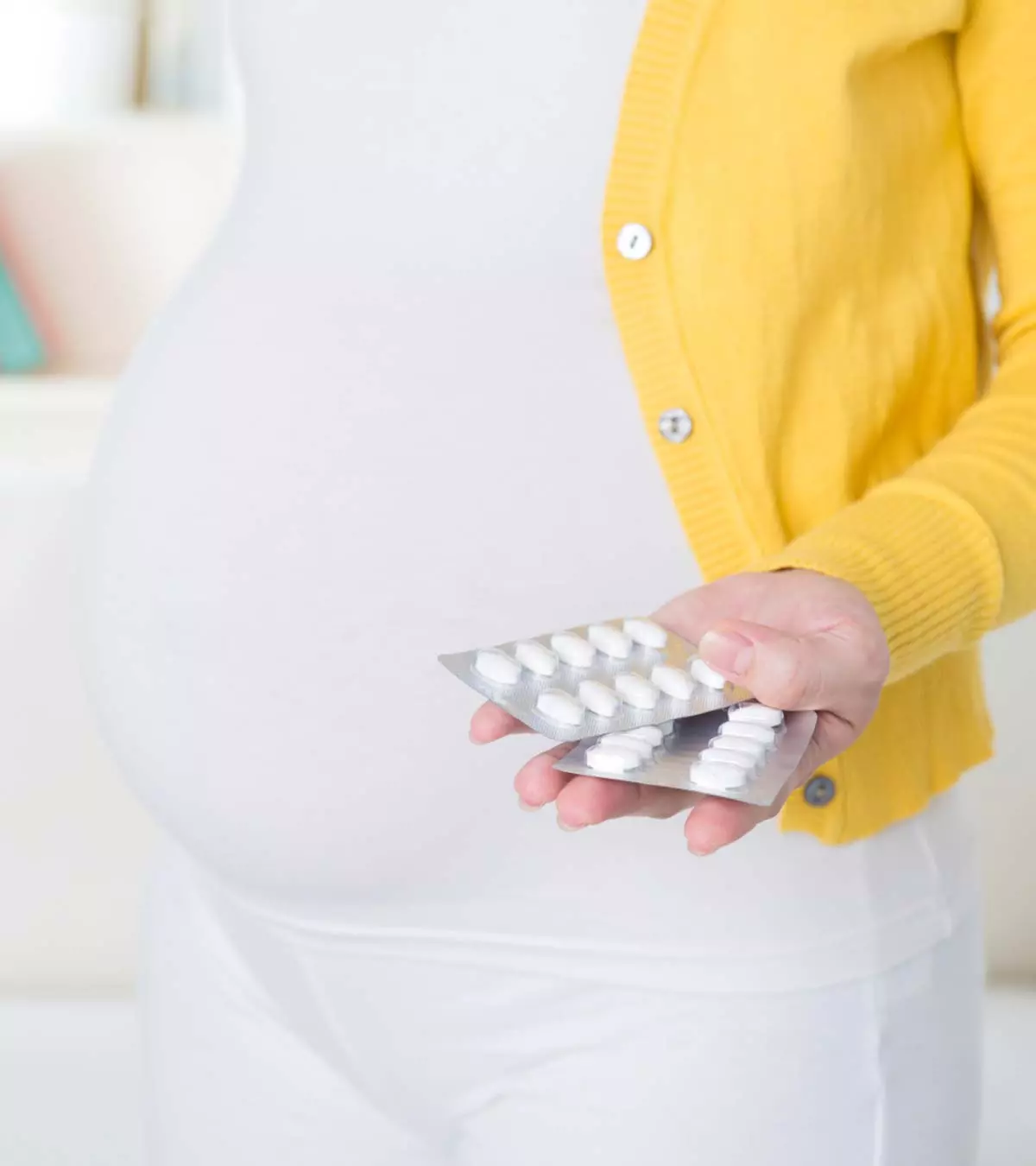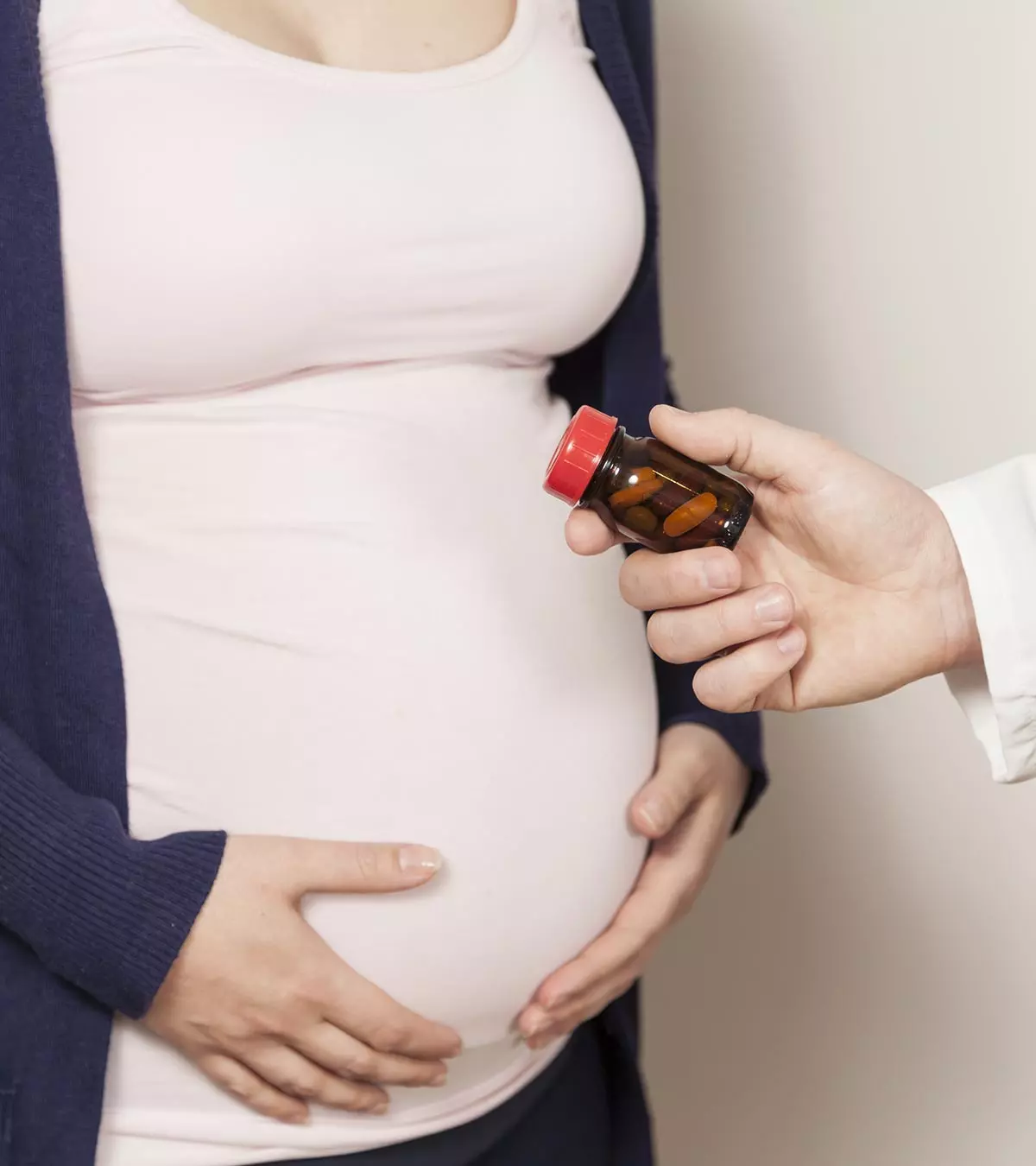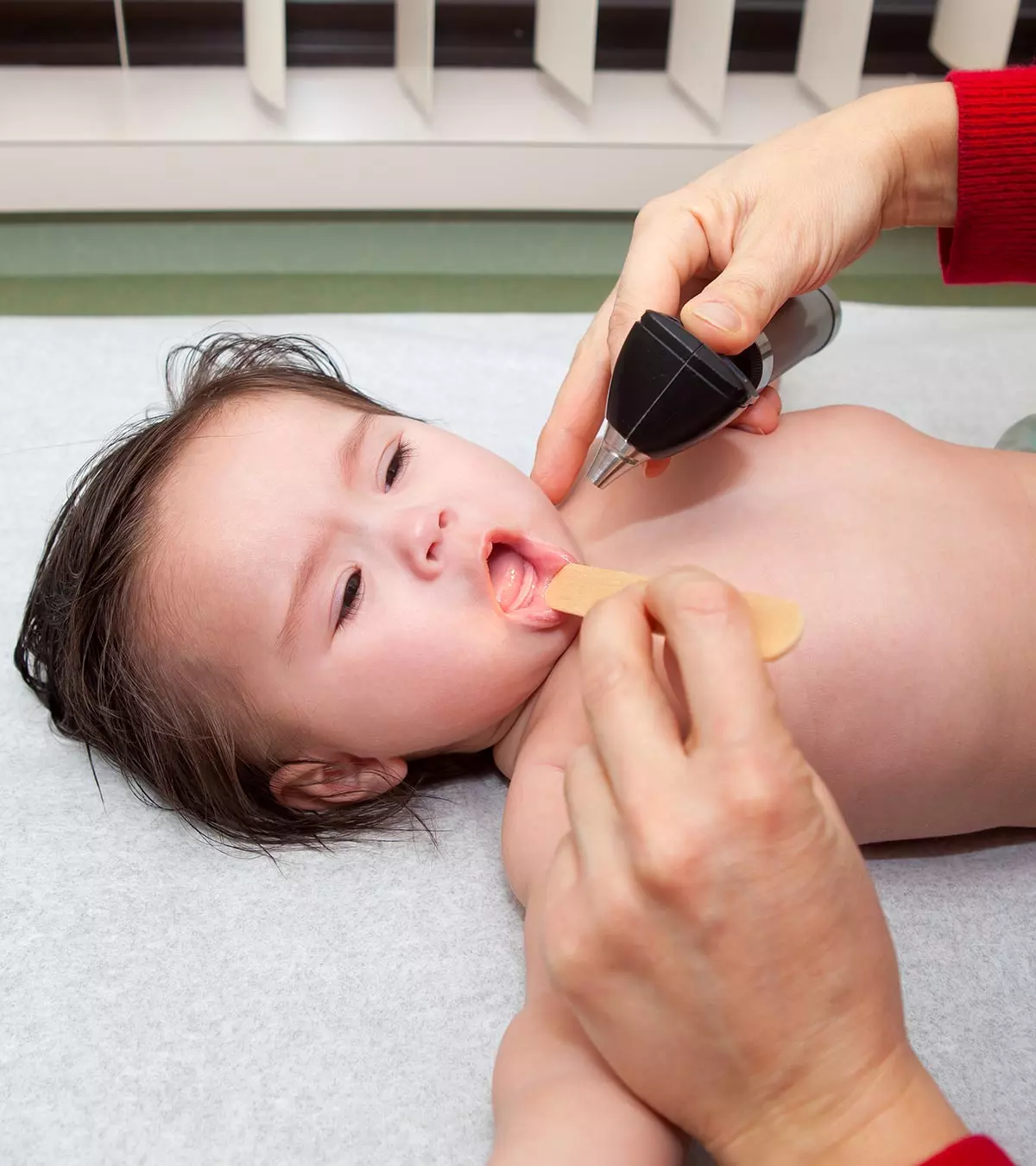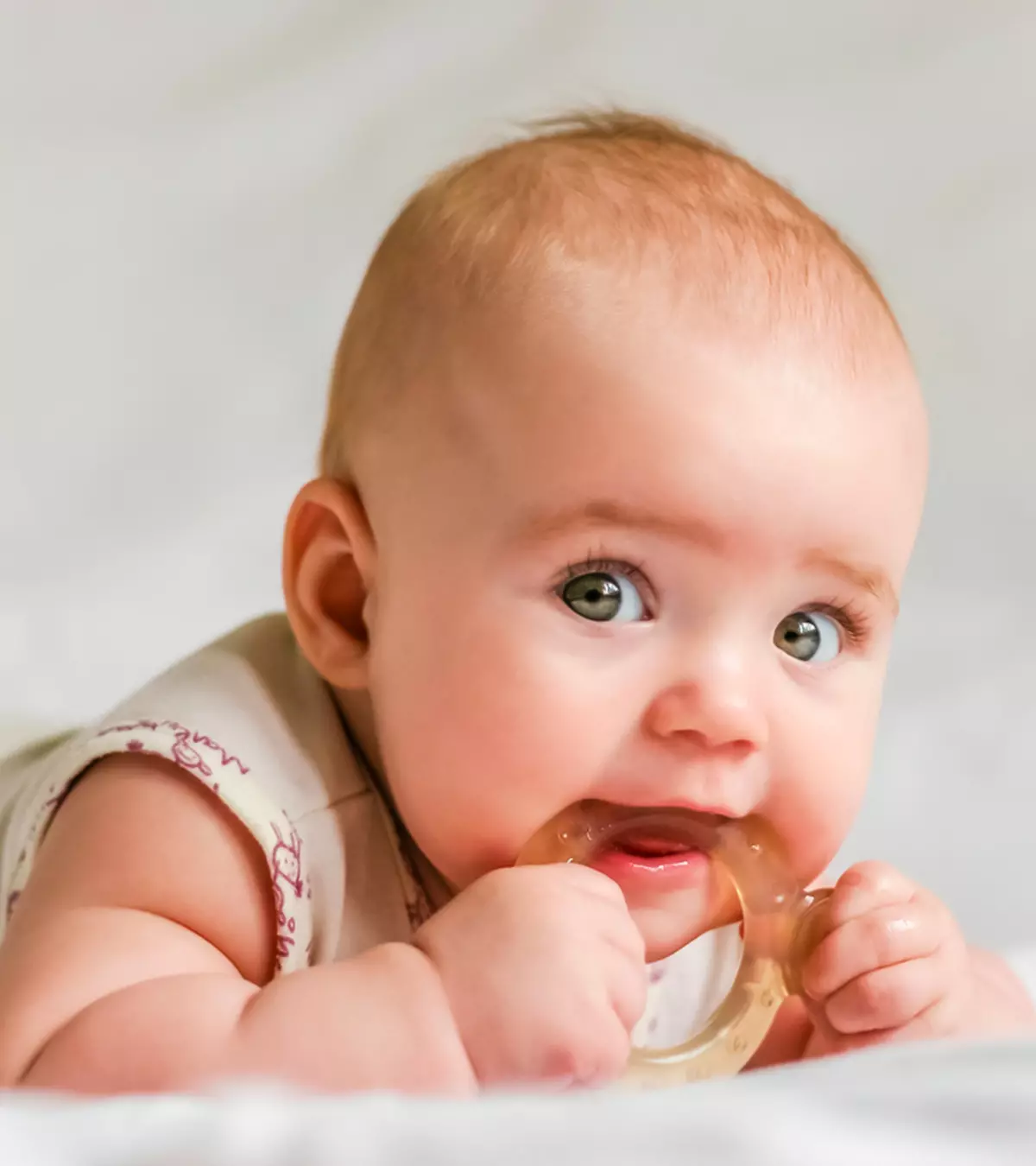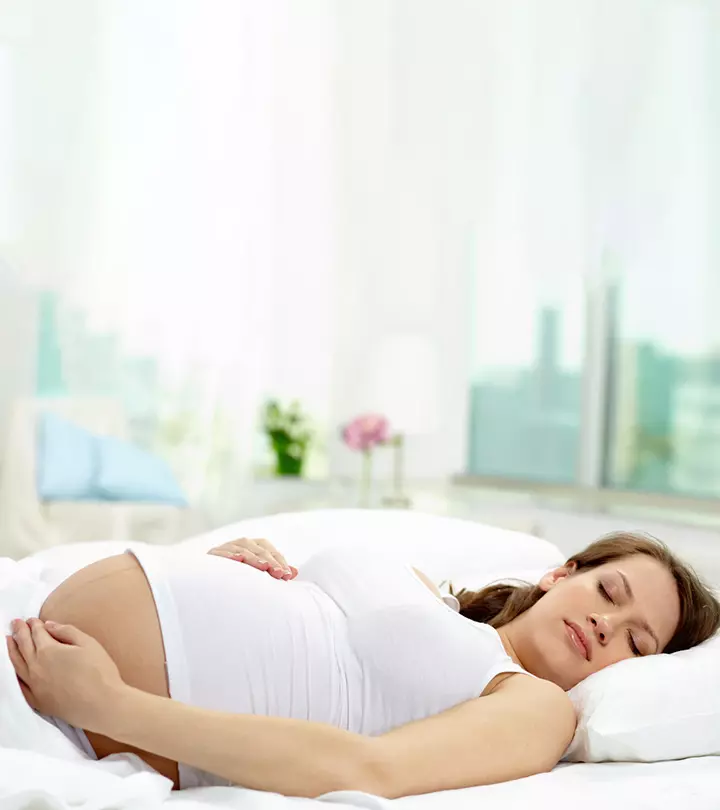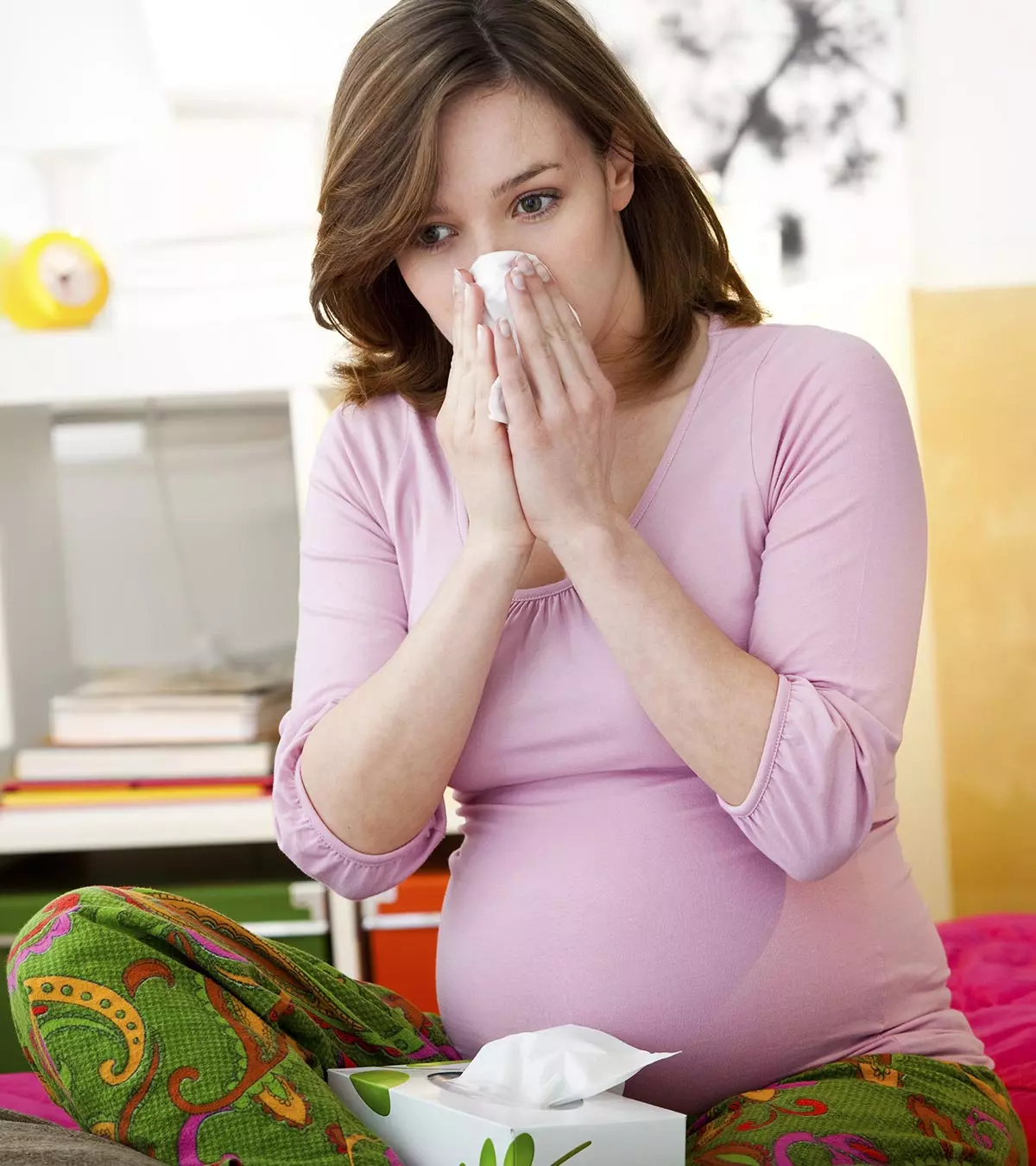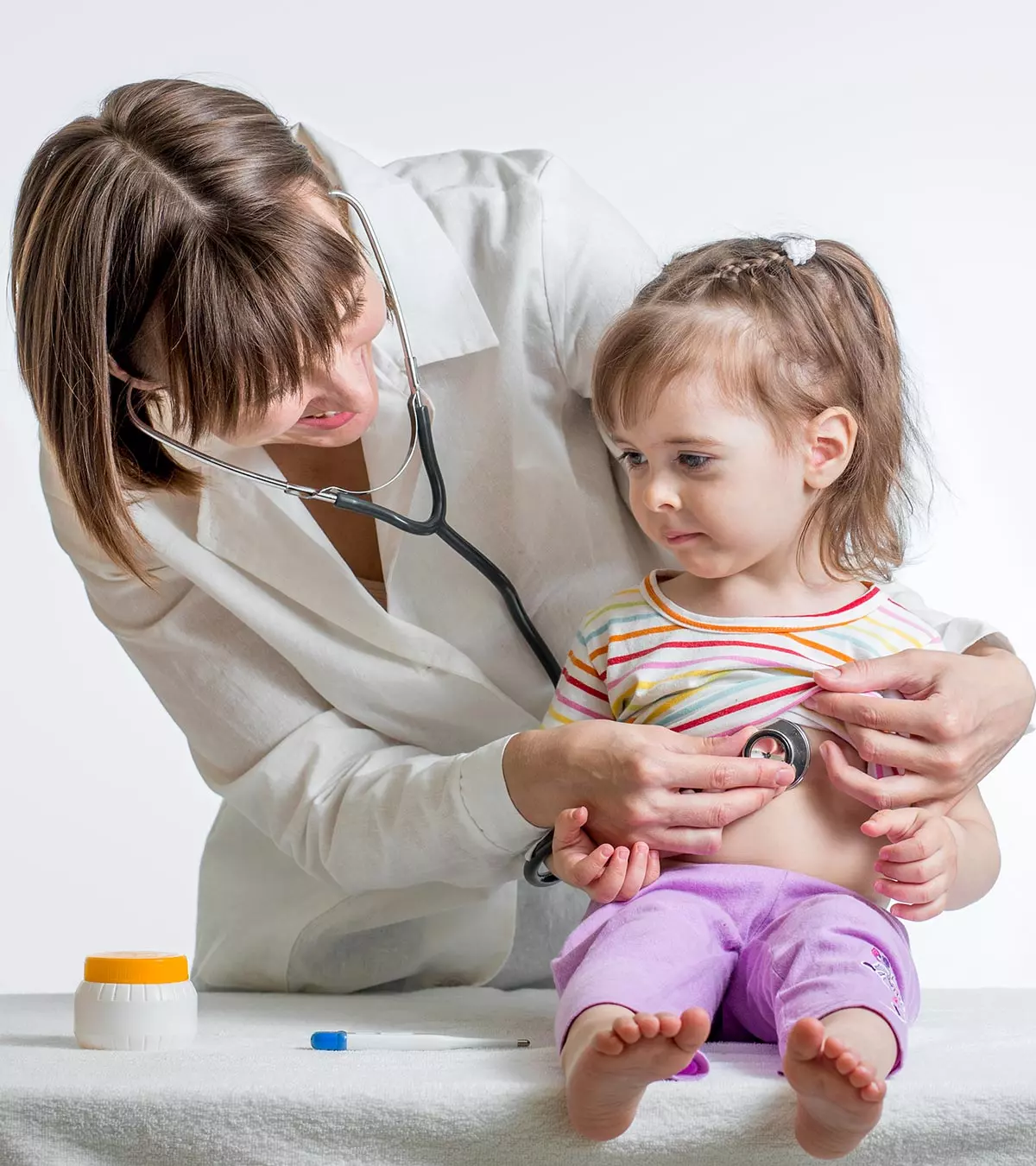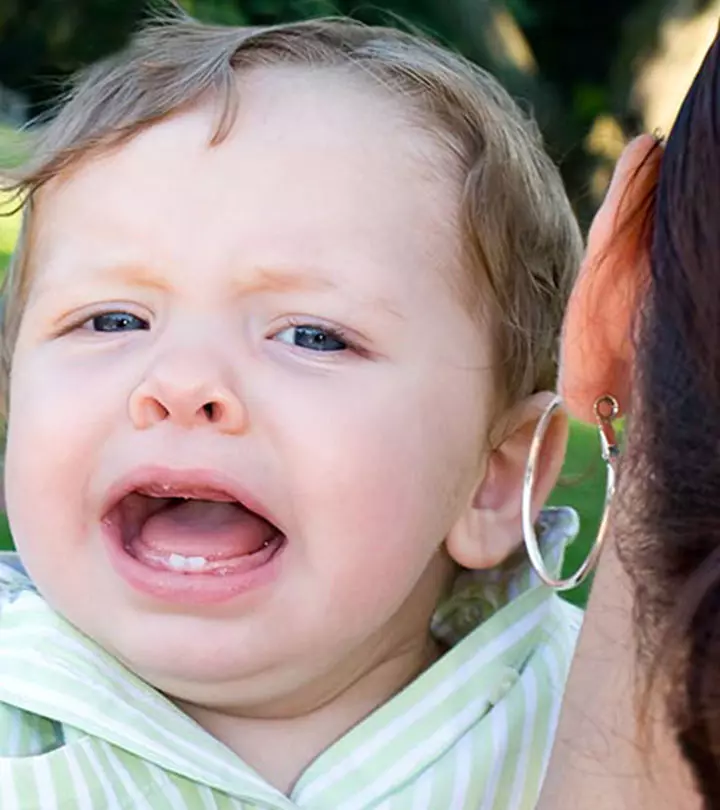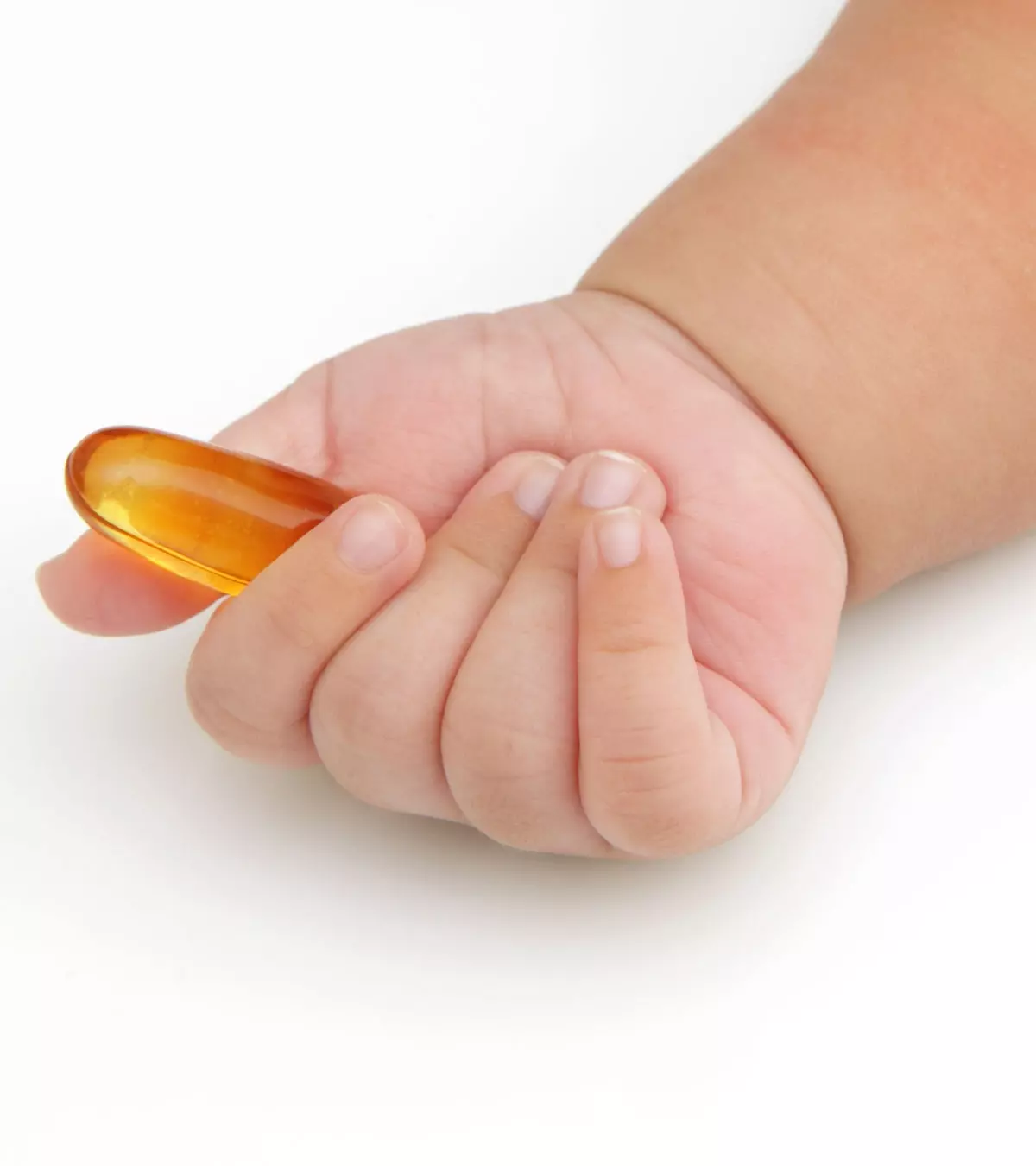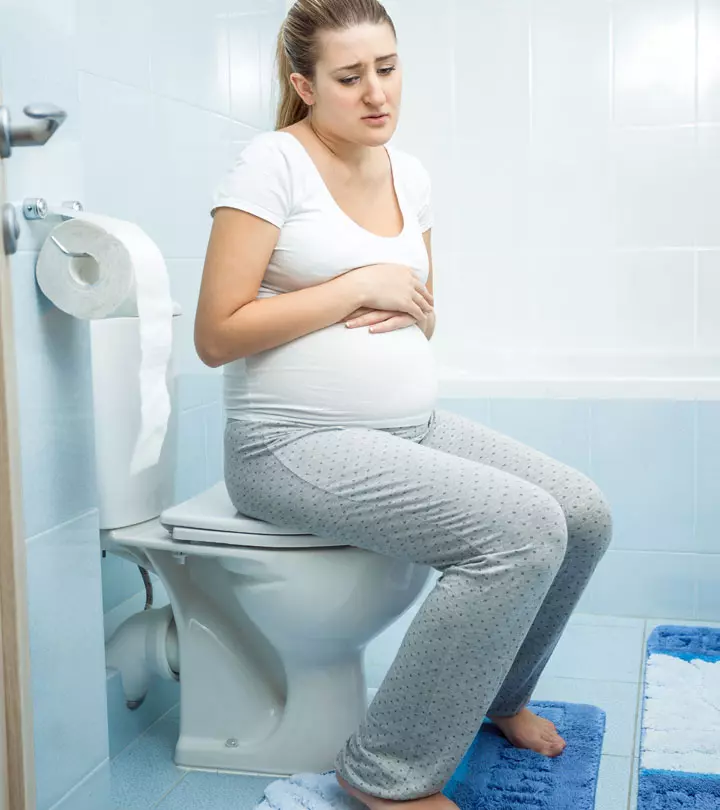
Image: ShutterStock
Colon cleansing is a procedure to cleanse the colon from toxic substances and relieve problems such as constipation and indigestion. Maintaining optimal colon health is essential during pregnancy as it not only supports digestive function but also contributes to the overall well-being of the mother and the developing fetus. Proper colon function can help alleviate common pregnancy-related discomforts such as constipation and bloating. However, colon cleansing during pregnancy may not be recommended for common pregnancy digestive health problems. If you are pregnant and experiencing gastrointestinal problems, then scroll through. This post will tell you about pregnancy colon cleansing, including its safety and measures to maintain a healthy and clean colon.
Key Pointers
- Colon cleansing is a medical procedure that uses water, sometimes mixed with herbs, to clear the colon of toxins and relieve constipation.
- Colon cleansing during pregnancy can cause dehydration, which can harm the fetus.
- Pregnant individuals should ensure adequate water intake to promote good gut health and prevent constipation.
- Regular exercise, as advised by a doctor, can help keep the digestive system strong and healthy during pregnancy.
What Is Colon Cleansing?
Colon cleansing, as the name suggests, is a medical procedure to cleanse the colon using water. At times, the water may be mixed with substances such as herbs, coffee, or clay (1).
The procedure involves pushing water through the rectum (enema) and then removing it from the body. This process is called colon irrigation or colonic irrigation. It eliminates toxins from the large intestines and provides relief from constipation, fecal impactioniSevere constipation with hardened stool stuck in the intestines , and other digestive problems (2). Colon cleansing is also possible through the use of oral laxativesiSubstances that regulate bowel movements and prevent or treat constipation (3). Oral laxatives help clear out the colon from end to end by inducing diarrhea. It is used as a last resort in treating complications such as fecal impaction that is induced by chronic constipation.
Is Colon Cleansing Safe During Pregnancy?

Colon cleansing – whether through a colon irrigation procedure or the use of oral laxatives – is not considered safe during pregnancy.
However, consider discussing the alternatives with your healthcare provider. These include reducing red meat and alcohol, increasing fiber intake through diet, staying hydrated with adequate water consumption, and engaging in regular physical activity(3). Also, include berries, onions, leeks, green tea, fermented foods, and cruciferous vegetables (4) (5).
Side Effects Of Colon Cleansing During Pregnancy
Colon cleansing while pregnant isn’t safe, and it can lead to many adverse effects. A study published in the American Family Physicians evaluated the benefits and risks of colon cleansing. It states that colon cleansing can have several adverse events, such as electrolyte imbalances, colitisiThe inflammation of the colon causing abdominal pain and diarrhea , rectal perforationiA tear or hole in the rectum wall which can be life-threatening , septicemiaiThe body's severe reaction to infection caused by bacteria in the bloodstream , and death (6). Find below a list of side effects caused by colon cleansing (7):
- Colon cleansing can cause dehydration and abdominal bloating. During pregnancy, dehydration can cause significant damage to fetal health.
- Colon cleansing can also cause injuries to your colon and rectum. Such injuries can cause complications during pregnancy regarding your treatment; not to mention your discomfort and pain.
- There is no scientific evidence that colon cleansing is necessary or provides benefits that you can’t get from other treatment measures.
- If you suffer from any health conditions such as heart, liver or kidney problems, colon cleanses can increase your risk of complications. The reason for this is that colonics can alter your body’s electrolyte levels.
- Colon cleanses (both the enema method and oral laxatives) can lead to untimely uterine contractions, causing preterm labor. During pregnancy, if needed, your doctor may prescribe you fiber-based laxatives, which are considered a safer intestinal cleansing and detoxification option (8).
Dr. Ila Dayananda, board-certified obstetrician/gynecologist from Brooklyn, New York, says, “Colon cleanse or colonic hydrotherapy is not recommended during pregnancy due to the risks of dehydration and infection, along with the possibility of falsely stimulating contractions. If you’re experiencing gastrointestinal pains during pregnancy, it’s important to immediately consult your doctor to determine possible causes.”
Before considering any treatment for digestive issues during pregnancy, it is vital to consult with a qualified healthcare provider. They can offer personalized advice based on individual health needs and ensure the safety of both mother and child.

 Quick tip
Quick tipColon Cleansing And Pregnancy
Some clinics or practitioners of colonics suggest the second trimester as the perfect time for a colon cleanse during pregnancy. However, there is no scientific evidence as yet to indicate that colon cleansing at any time during the pregnancy is safe. Moreover, no evidence proves that colonics are necessary to cleanse the colon (6). While colon cleansing may have some general benefits, safer alternatives are available to manage digestive or intestinal issues during pregnancy. Using enemas or herbal supplements for colon cleansing could potentially harm the fetus, making it essential to consult a healthcare provider before considering such procedures (10).
Maintaining Good Colon Health During Pregnancy
It is not uncommon for women to experience constipation during pregnancy, as fetal growth exerts pressure on the intestinal muscles. Other reasons for it can be hormonal changes, increased use of iron supplements and lack of physical activity.
Here are some measures you can take during your pregnancy to keep your colon clean and healthy (3) (4) (5).
- If you are planning your pregnancy, stop consuming toxic products such as alcohol, tobacco, and processed foods. Also, talk to your doctor about necessary lifestyle changes such as exercises to do before and during your pregnancy. Such healthy changes can go a long way to keeping your body free of toxins (11).
- Ensure adequate fluid intake during your pregnancy for good gut health. Proper fluid intake can minimize chances of constipation during pregnancy.
- Consume more fiber-rich foods such as whole grains, lentils, fruits, and vegetables. If you need a fiber supplement depending on any health concern, your doctor can recommend safe fiber-based supplements and laxatives such as Citrucel and Colace(12). Avoid taking unprescribed over-the-counter (OTC) fiber supplements or laxatives during pregnancy.

 Quick fact
Quick fact- Include physical activity in your routine during your pregnancy. Physical movement helps to keep the digestive system in good condition.
- Consider incorporating relaxation techniques such as prenatal yoga or meditation, as stress management can positively affect digestion and overall gut health.
- Talk to your doctor about your digestive health concerns to find the best solutions for you during your pregnancy.
Frequently Asked Questions
1. Is it normal to have colon pain during pregnancy?
Abdominal pains or mild cramps are common during pregnancy and may be caused by trapped intestinal gas and constipation. Changing your position, defecating, or passing gas may provide relief (14).
2. Can colon problems cause miscarriage?
Colon pain caused by irritable bowel syndromeiA common disorder causing stomach pain, bloating, and altered bowel habits may be associated with an increased risk of miscarriage (15) (16). Consult your doctor in such cases to find a treatment plan to help alleviate complications.
3. Does my colon move during pregnancy?
The growing fetus can cause the stomach and intestines to be displaced upward and laterally, while the colon may become narrowed due to compression (17).
4. Can pregnancy be a cause of colon polyps?
People with familial adenomatous polyposisiAn inherited condition where hundreds of polyps form in the colon, significantly increasing cancer risk (FAP) are more prone to developing colon polyps. Pregnancy can worsen the disease severity and aggravate the symptoms in the upper gastrointestinal tract in FAP patients (18).
Whether to treat indigestion or relieve constipation, colon cleansing during pregnancy is unsafe. Dehydration and injuries to the colon and rectum are some adverse effects of colon cleansing that can affect your and your unborn baby’s health. Thus, you should not try colon cleansing without consulting your healthcare provider. Eating a fiber-rich diet, maintaining optimum hydration, and staying physically active are practical ways to keep your gut health sound. Speak to your doctor if you have digestive issues after making positive lifestyle and dietary changes to ensure proper prenatal care.
Infographic: Maintaining Good Colon Health During Pregnancy
Fetal weight and growing uterus during pregnancy can press on or block parts of the intestine, slowing digestion and triggering issues like constipation. However, adopting some practical lifestyle changes may help manage these digestive issues and take proper care of your colon health. Read the below infographic to learn how. Illustration: Momjunction Design Team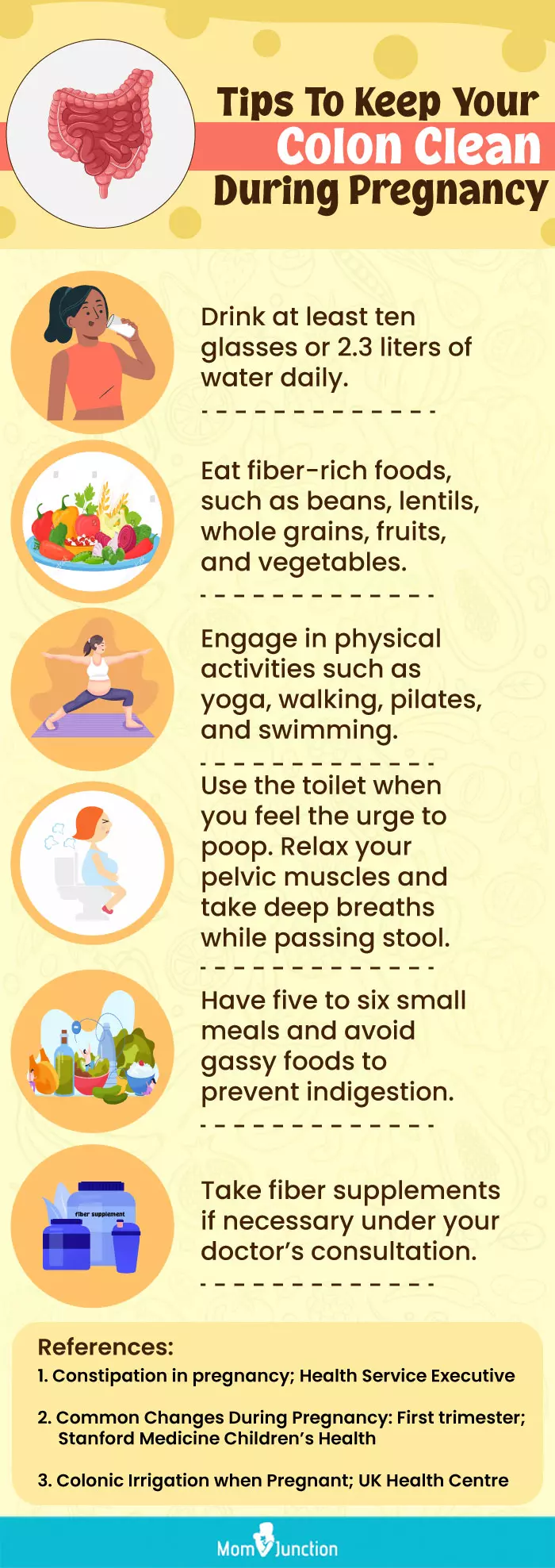
References:
- Harvard Health Ad Watch: What’s being cleansed in a detox cleanse?
https://www.health.harvard.edu/blog/harvard-health-ad-watch-whats-being-cleansed-in-a-detox-cleanse-2020032519294 - Colon Cleanse: What You Need to Know.
https://www.narayanahealth.org/blog/colon-cleanse-what-you-need-to-know - Colon Cleansing: Medical Breakthrough or Myth?
https://www.jlgh.org/Past-Issues/Volume-9-Issue-2/Colon-Cleansing.aspx - Colon Health and Diet Foods That Promote A Healthy Colon.
https://www.woosterhospital.org/colon-health-and-diet-foods-that-promote-a-healthy-colon/ - Digestive Diseases Nutrition.
https://www.uclahealth.org/medical-services/gastro/nutrition/well-being-and-nutrition-tips/food - Colon Cleansing and Body Detoxification: Any Evidence of Benefit or Harm?
https://www.aafp.org/pubs/afp/issues/2010/0201/p337.html - Colonic Irrigation When Pregnant.
https://www.healthcentre.org.uk/colonic-irrigation/colonic-irrigation-when-pregnant.html - Jonathan D. Siegel and Jack A. Di Palma; (2005); Medical Treatment of Constipation.
https://www.ncbi.nlm.nih.gov/pmc/articles/PMC2780140/ - Why You Should Avoid Colon Cleansing.
https://health.clevelandclinic.org/colon-cleansing-is-it-safe - Steven Horne; (2006); Colon Cleansing: a popular but misunderstood natural therapy.
https://pubmed.ncbi.nlm.nih.gov/17182488/ - Planning for pregnancy.
https://www.cdc.gov/pregnancy/about/index.html - Your Guide to Pregnancy-Safe Medications.
https://health.clevelandclinic.org/pregnancy-safe-medications - Eating Right Before and During Pregnancy
https://www.ucsfhealth.org/education/eating-right-before-and-during-pregnancy - Stomach pain in pregnancy.
https://www.nhs.uk/pregnancy/related-conditions/common-symptoms/stomach-pain/ - Ali S Khashan; (2012); Increased risk of miscarriage and ectopic pregnancy among women with irritable bowel syndrome.
https://pubmed.ncbi.nlm.nih.gov/22373726/ - Irritable Bowel Syndrome (IBS);
https://www.niddk.nih.gov/health-information/digestive-diseases/irritable-bowel-syndrome - Sanoop Koshy Zachariah et.al; (2019); Management of acute abdomen in pregnancy: current perspectives
https://www.ncbi.nlm.nih.gov/pmc/articles/PMC6371947/ - Pregnancy does not influence colonic polyp multiplicity but may modulate upper gastrointestinal disease in patients with FAP
https://www.ncbi.nlm.nih.gov/pmc/articles/PMC2597927//
Community Experiences
Join the conversation and become a part of our nurturing community! Share your stories, experiences, and insights to connect with fellow parents.
Read full bio of Dr. Meenu Vashisht Ahuja
- Dr. Ila Dayananda, a board-certified obstetrician & gynecologist, most recently served as the chief medical officer for Planned Parenthood of Greater New York. She studied medicine and master's in Public Health at Northwestern University Medical School and then pursued an OB/GYN residency at the Beth Israel Deaconess Medical Center in Boston, MA. Dr. Dayananda holds a Family Planning Fellowship at Brigham and Women's Hospital/Harvard Medical School in Boston, MA.
 Dr. Ila Dayananda, a board-certified obstetrician & gynecologist, most recently served as the chief medical officer for Planned Parenthood of Greater New York. She studied medicine and master's in Public Health at Northwestern University Medical School and then pursued an OB/GYN residency at the Beth Israel Deaconess Medical Center in Boston, MA. Dr. Dayananda holds a Family Planning Fellowship at Brigham and Women's Hospital/Harvard Medical School in Boston, MA.
Dr. Ila Dayananda, a board-certified obstetrician & gynecologist, most recently served as the chief medical officer for Planned Parenthood of Greater New York. She studied medicine and master's in Public Health at Northwestern University Medical School and then pursued an OB/GYN residency at the Beth Israel Deaconess Medical Center in Boston, MA. Dr. Dayananda holds a Family Planning Fellowship at Brigham and Women's Hospital/Harvard Medical School in Boston, MA.
Read full bio of Ria Saha
Read full bio of Rebecca Malachi
Read full bio of Reshmi Das











